Conflict
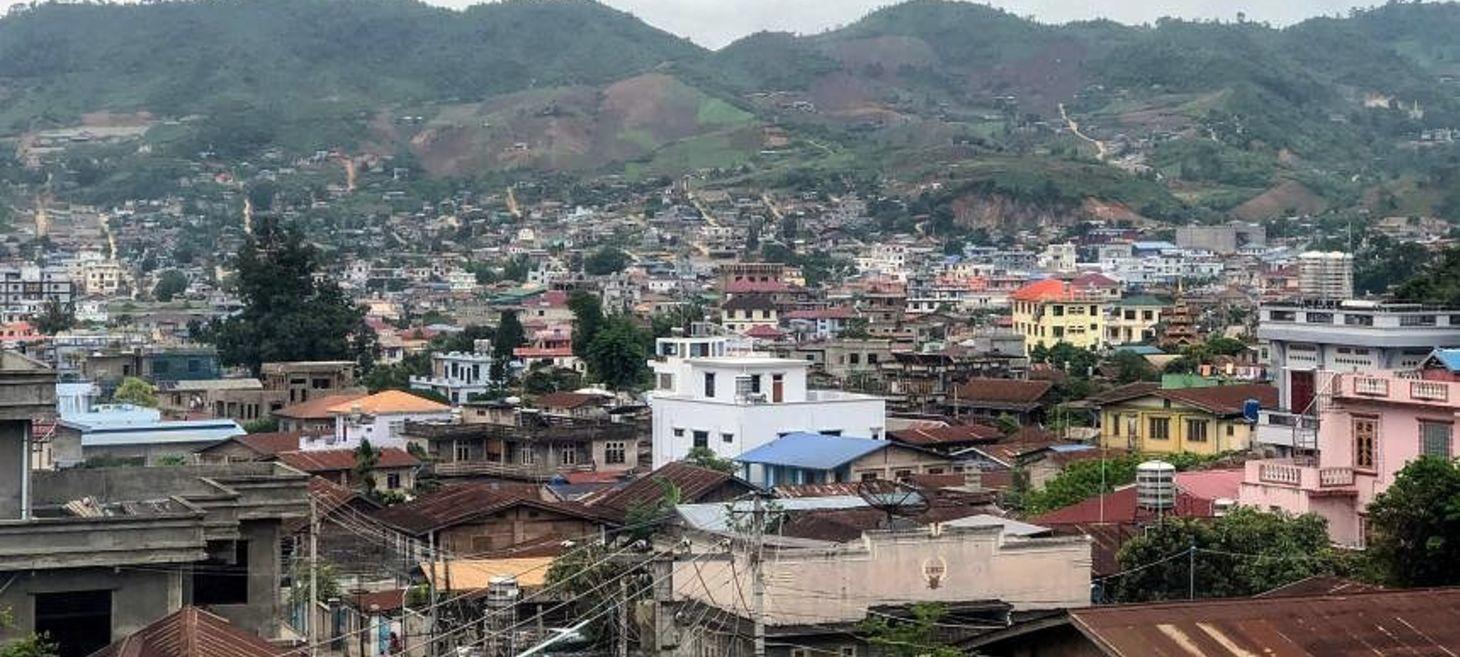
Clashes break out near Myanmar military regional command
On July 3, 2024, intense clashes erupted near a regional military command in Lashio, northern Myanmar, signaling a significant escalation in the ongoing conflict between the Myanmar military (junta) and the "Three Brotherhood Alliance" of ethnic armed groups. The violence, which began on the night of July 2, has led to the junta shutting down all roads into Lashio, although some local shops remain open despite the unrest. The fighting has resulted in the destruction of infrastructure and the death of six civilians due to shelling. This offensive is part of a broader campaign that started in October 2023, where the alliance has seized considerable territory and border crossings, marking a major setback for the junta since its 2021 coup. The situation has also affected local transportation, with all flights to Lashio from Yangon canceled since the morning of July 3.
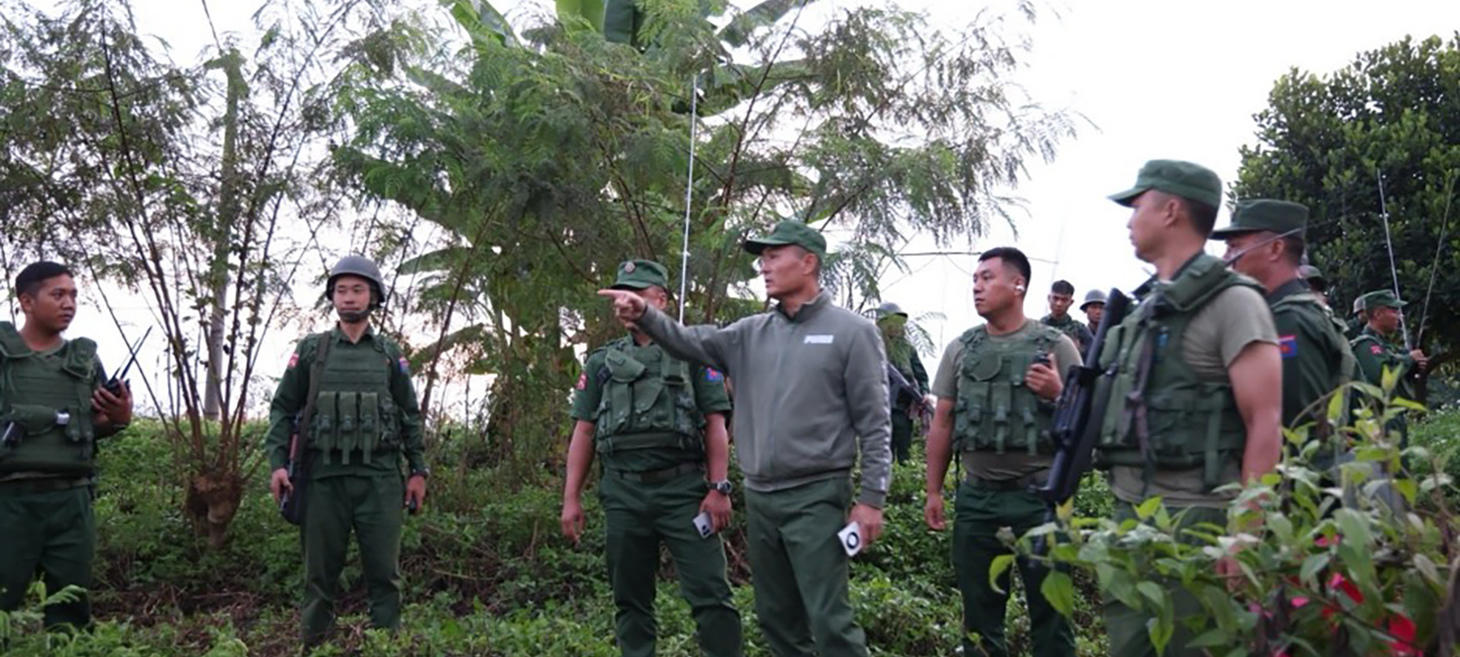
Myanmar’s MNDAA Launches Offensive to Seize Northern Shan Capital
The Myanmar National Democratic Alliance Army (MNDAA), along with allied groups, has launched a significant offensive aimed at capturing the northern Shan State capital of Lashio. This operation, part of a broader campaign against the Myanmar junta, has led to fierce clashes around the city, targeting at least five military bases. The conflict has escalated tensions in the region, prompting local residents to prepare for prolonged instability. This offensive is part of the ongoing struggle by ethnic armed groups to challenge the central authority of the Myanmar military regime, which has been marked by widespread violence and disruption.
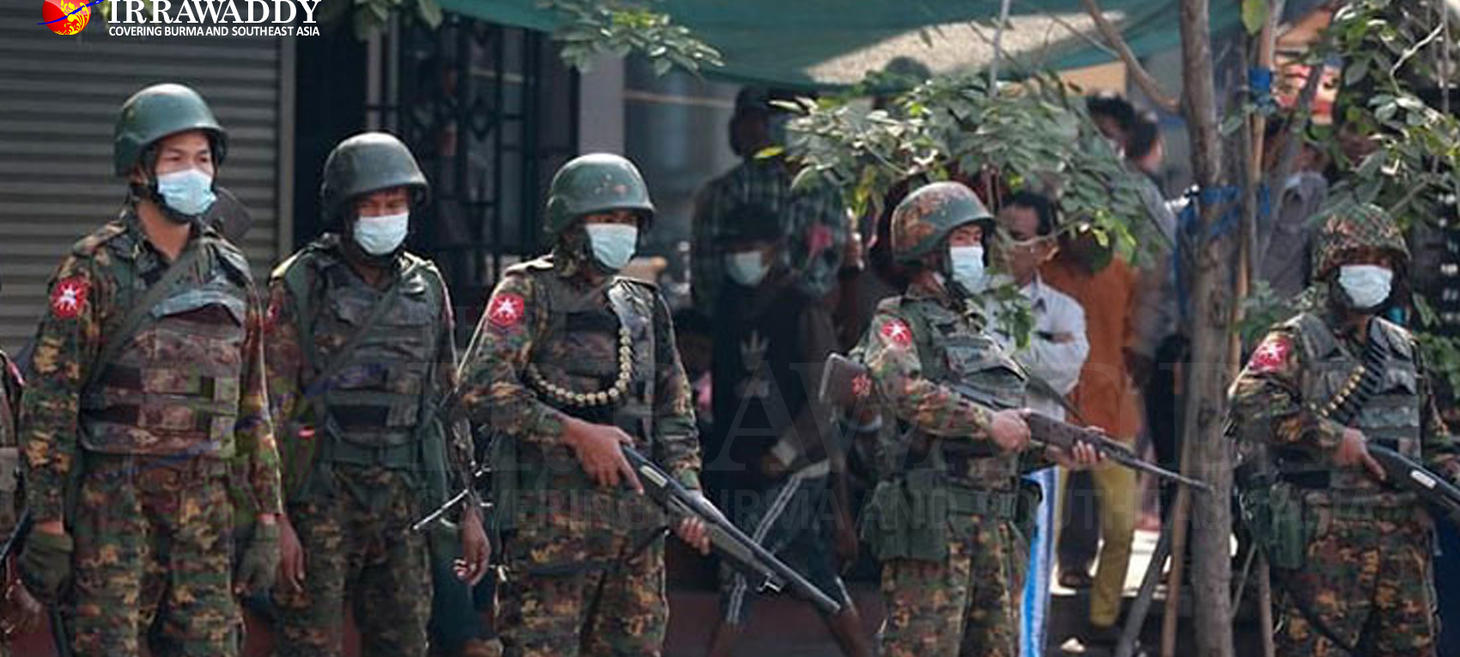
Myanmar Junta Braces for Mandalay Attacks
The Myanmar junta is intensifying its security measures in Mandalay and surrounding areas in response to escalating threats from anti-regime forces. The heightened security includes increased checks at key checkpoints, more street patrols, and the deployment of Pyu Saw Htee militias and former military personnel. This response comes as the Mandalay People’s Defense Force (PDF) and other resistance groups have captured several junta positions and are actively engaging in operations against the regime. The situation has led to a tense atmosphere in the region, with residents taking precautions such as withdrawing cash and stocking up on essentials, fearing potential conscription and further violence. The junta's actions reflect its struggle to maintain control amid ongoing resistance and attacks, highlighting the severe instability and conflict within the area.
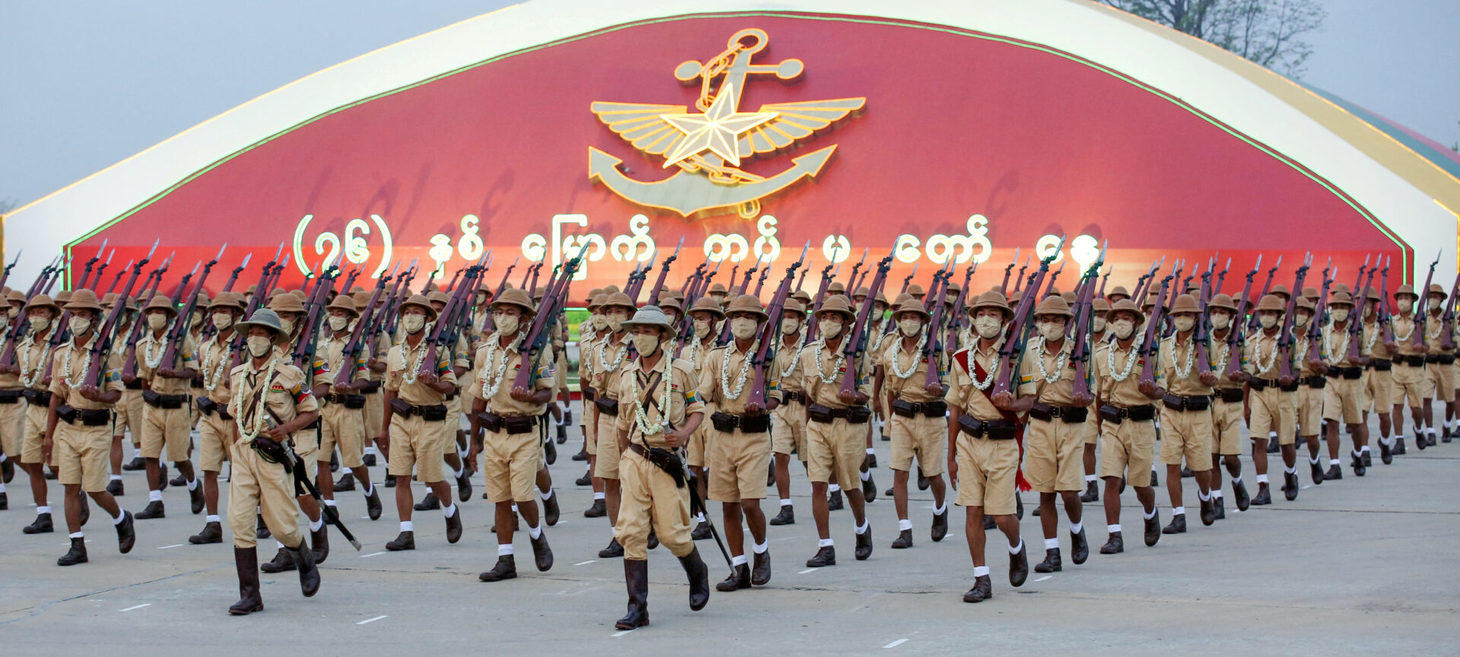
Conflict Escalates In Myanmar's Maungdaw
Amid escalating conflict in Myanmar's Maungdaw region, thousands of Rohingya are fleeing their homes to escape violence and persecution. The situation has worsened due to clashes between the Arakan Army and Myanmar's military, leading to increased insecurity and humanitarian crises. Many Rohingya are seeking refuge in neighboring countries, facing dire conditions and uncertain futures. The international community is urged to intervene and provide aid to the displaced population, highlighting the ongoing plight of the Rohingya and the need for a sustainable resolution to the conflict.
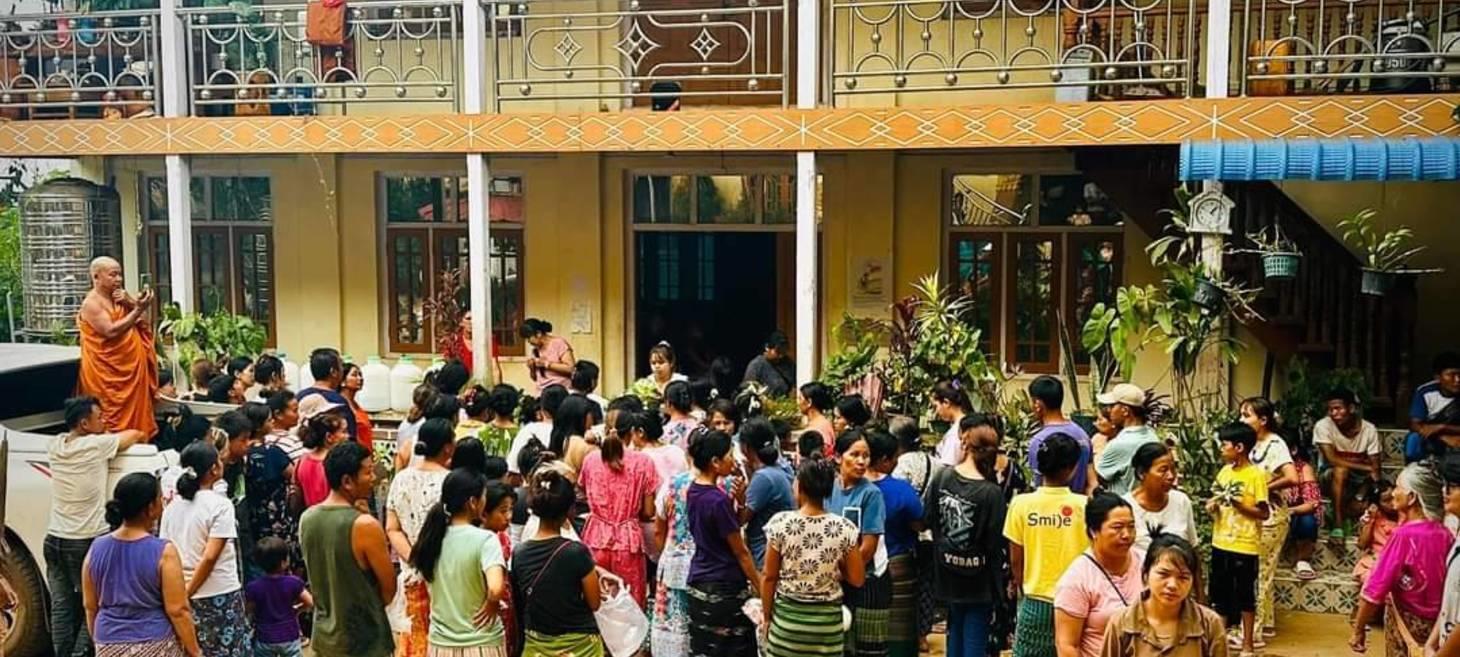
Rising Civilian Casualties as Entire Families Perish in Kyaukme Artillery Bombardments
In Shan State, Myanmar, escalating conflicts between the Junta and the Ta'ang National Liberation Army (TNLA) have led to severe civilian casualties and displacement. Artillery shelling and airstrikes by the Junta have resulted in the deaths of entire families in Kyaukme Township, with incidents reported near schools and residential areas, causing widespread fear and trapping residents. Clashes have intensified as the TNLA continues its offensive, targeting Junta troops and capturing strategic locations. The violence has forced thousands to flee to safer areas, seeking refuge in monasteries and with relatives, while the need for emergency aid grows for those displaced by the ongoing conflict.
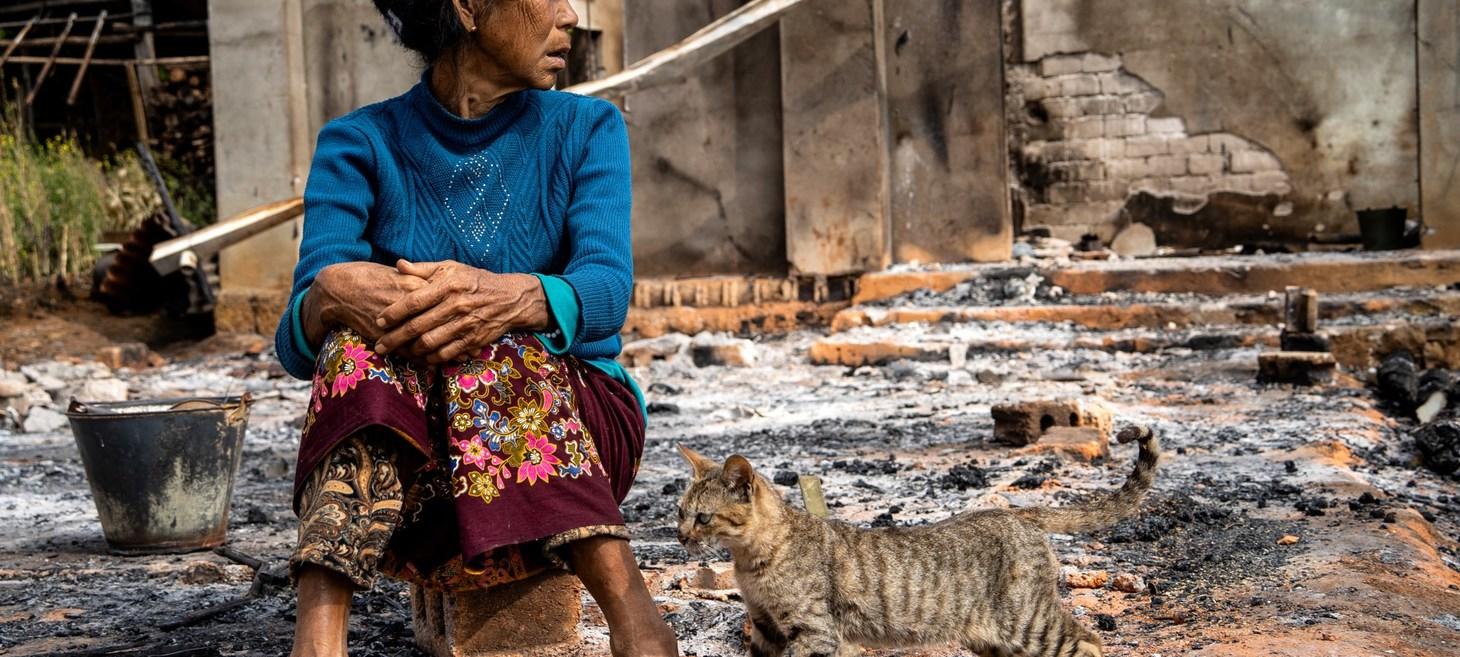
Anti-coup forces allege Myanmar military using banned, restricted weapons
Anti-coup forces in Myanmar have accused the military of using banned and restricted weapons, including chemical weapons and incendiary devices like white phosphorus. These allegations come amid ongoing conflicts between the military, which seized power in February 2021, and various ethnic armed groups. Reports detail instances where fighters experienced symptoms consistent with exposure to chemical agents, and there are claims of the military employing tactics that cause unnecessary suffering or indiscriminate harm to civilians. International laws, such as the Chemical Weapons Convention and the Convention on Certain Conventional Weapons, prohibit the use of such weapons. Despite Myanmar ratifying the former, it has not acceded to the latter. Human rights experts and international bodies like the Independent Investigative Mechanism for Myanmar are calling for investigations into these allegations, emphasizing the importance of verifying these claims through credible, independent groups.
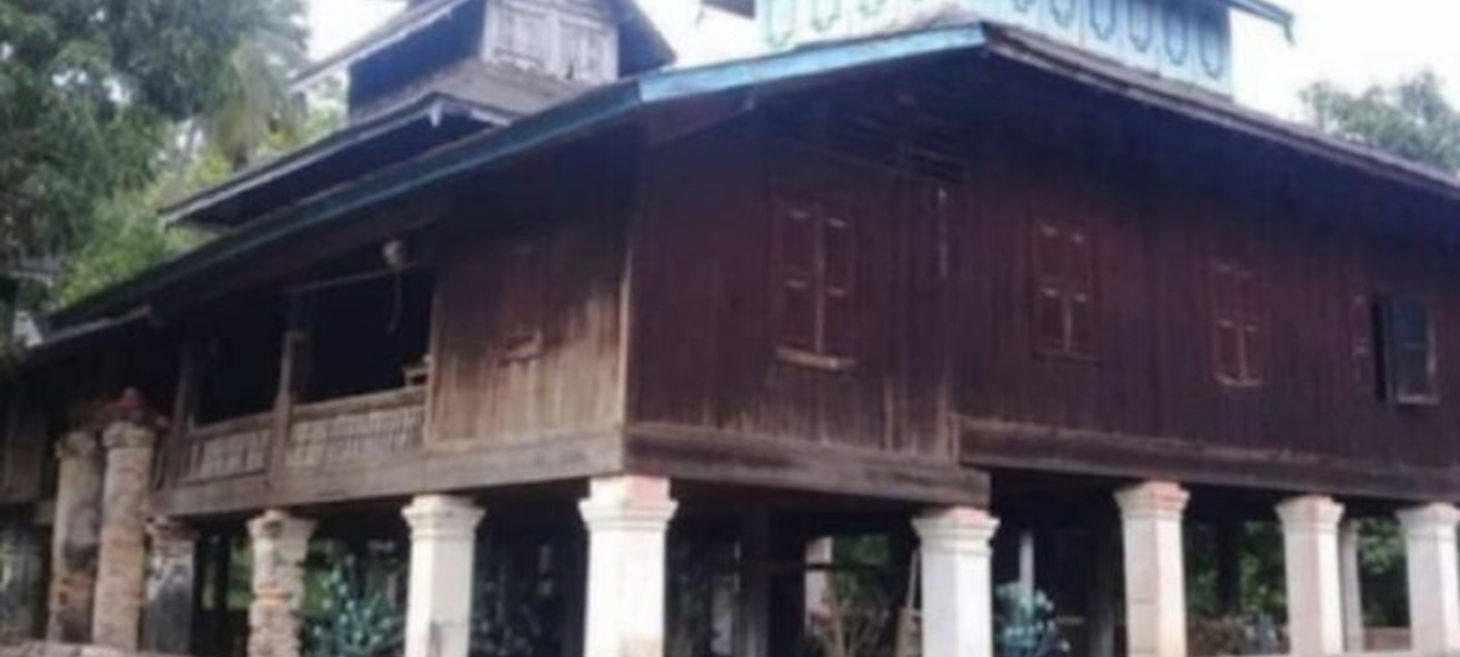
Junta Troops Retreat to Kawkareiek as Operation Aung Zay Ya Stalls
Junta troops, aiming to reach Myawaddy town as part of Operation Aung Zay Ya, have retreated to Kawkareik town after being stalled near the Karen National Union's agriculture and livestock camp on Asia Road. They have now occupied Shwe Kyat Min Monastery in Tatangku village, evicting monks and novices to use it as a rear base. The operation, launched in April to recapture strategic areas in Myawaddy township, has seen no significant advancement due to strong defenses by the Karen National Liberation Army and the People’s Defense Force, resulting in heavy casualties and increased malaria stress among Junta soldiers. Despite continuous bombardments, the Junta's ground forces have been unable to progress, causing villagers around the monastery to flee.
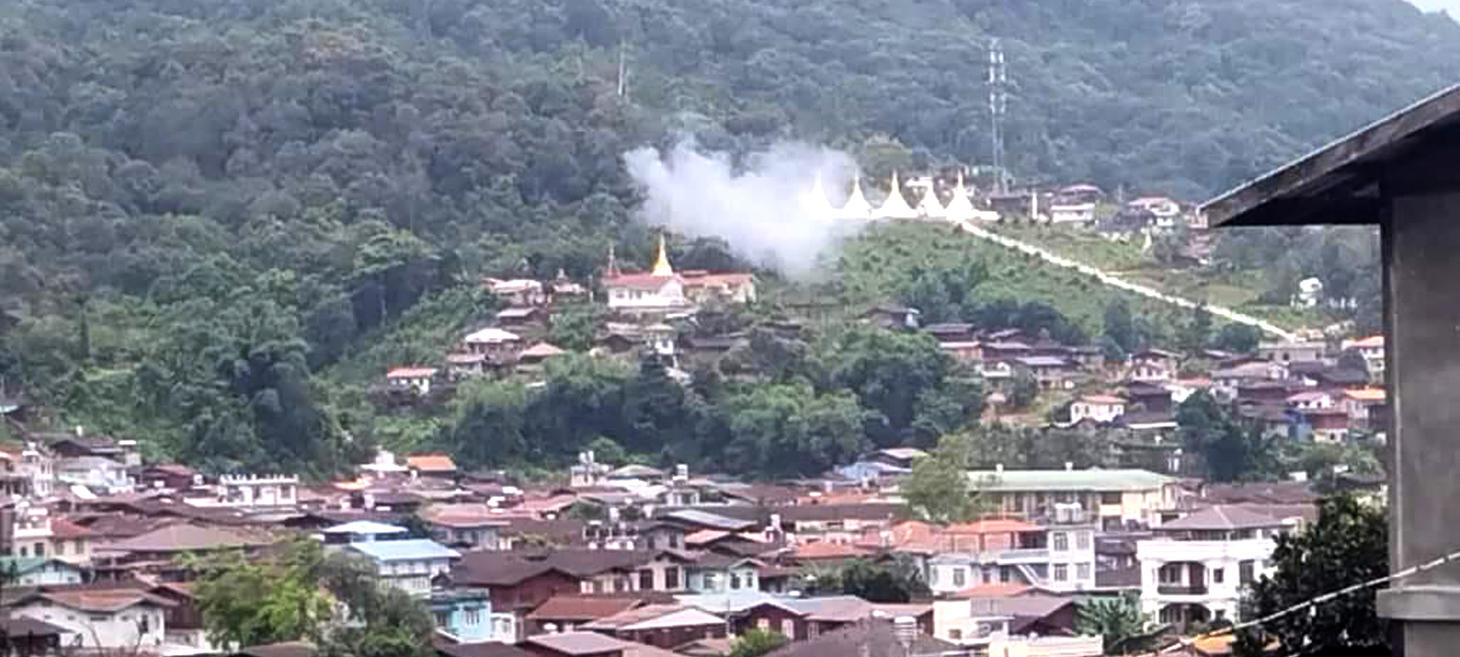
Fighting, Tight Checks Prevent Residents From Fleeing Clashes in Myanmar’s Ruby Town
In Mogoke, a ruby-mining town in central Myanmar, residents attempting to escape escalating violence have been hindered by ongoing clashes and stringent vehicle inspections by anti-regime forces, leading to extensive traffic jams. The situation has forced many to return home, with some choosing to dig air raid shelters for safety. Anti-regime forces have justified the tight checks as necessary to prevent junta soldiers from escaping and to protect civilians from indiscriminate firing by the junta. Amidst the chaos, the road to Mandalay was briefly opened, allowing some vehicles to leave, but renewed fighting has stranded others, underscoring the volatile and dangerous environment in the region.
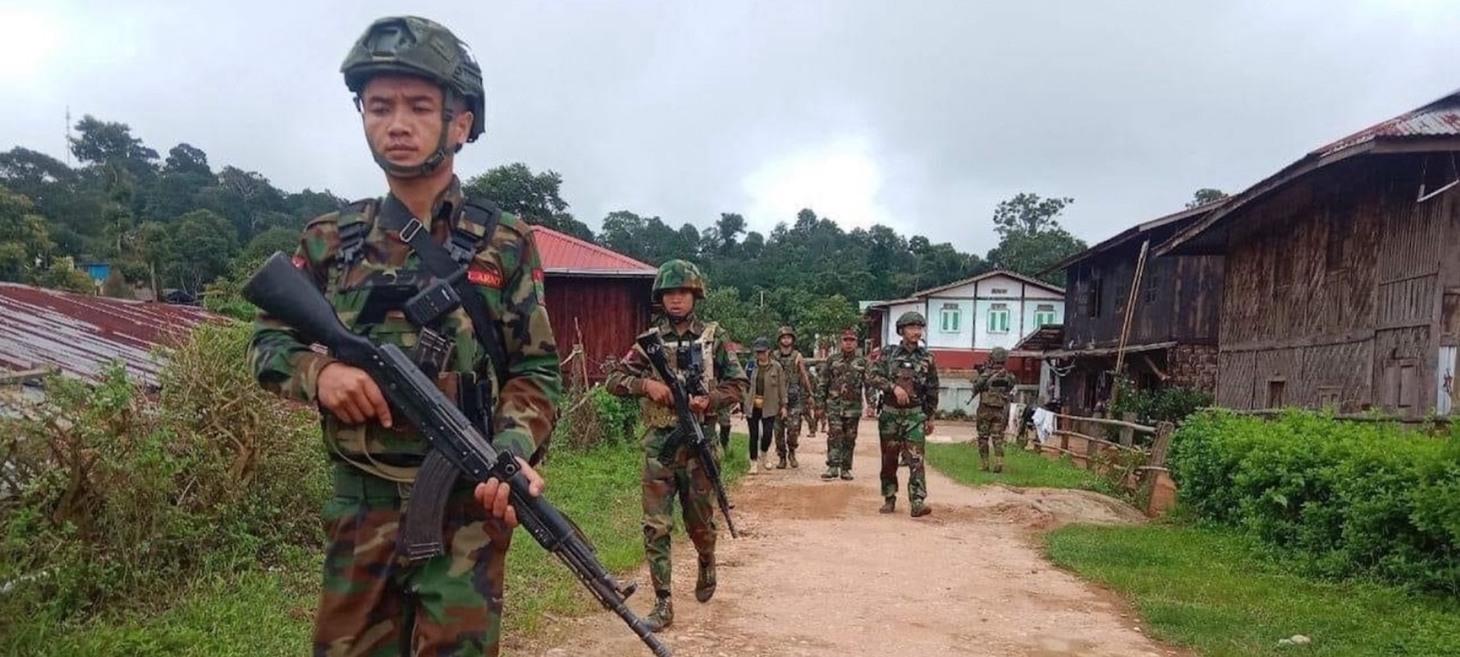
Op. 1027 Update: TNLA Captures Seven Myanmar Junta Bases, Two Battalion HQs
The Ta’ang National Liberation Army (TNLA) and its allies have achieved significant victories against the Myanmar junta, capturing seven frontline bases and two battalion headquarters in northern Shan State and northern Mandalay Region over four days. This offensive, part of Operation 1027, has seen intense fighting, with the junta responding by indiscriminately bombing towns, resulting in civilian casualties and property damage. The TNLA's success includes the seizure of over 30 junta positions, control of key towns, and significant arms captures, despite the junta's use of heavy weaponry and airstrikes. The operation highlights the escalating conflict and the challenges faced by the junta in maintaining control over rebel-held territories.
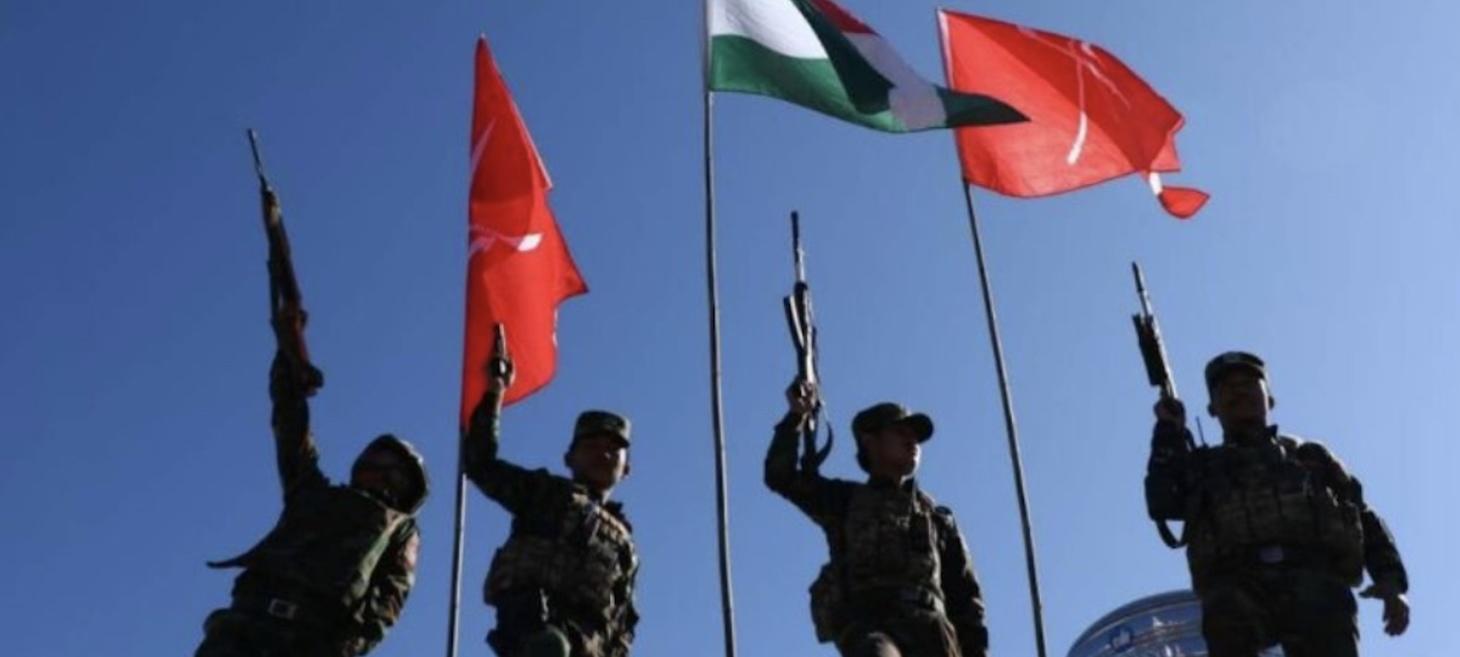
Putting Myanmar's 1027 in realist perspective
Operation 1027, launched by the Three Brotherhood Alliance (3BA) against Myanmar's State Administration Council (SAC), has marked a significant turning point in the ongoing conflict, showcasing the rebels' strategic planning, operational security, and effective alliance-building. Despite initial successes, including capturing key towns and military bases, the operation has also highlighted challenges such as the SAC's superior firepower, internal tensions among ethnic armed organizations (EAOs), and the difficulties of administering newly captured territories. The operation's impact extends beyond military gains, affecting humanitarian needs and revealing the complexities of unity among resistance groups. As Operation 1027 progresses, it underscores the importance of realistic assessments over triumphalist narratives, emphasizing the long-term nature of the struggle against the SAC.
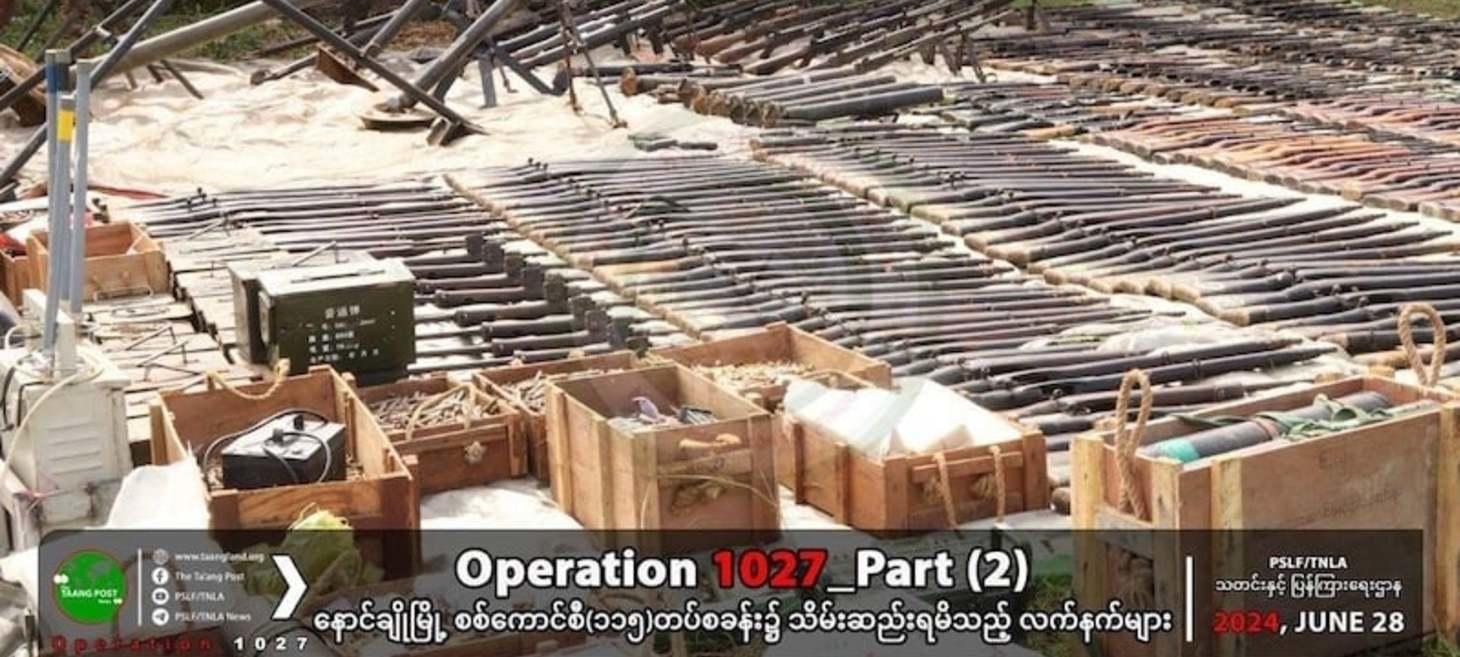
TNLA and joint forces seize large cache of weapons from junta battalion in Nawnghkio, Shan State
The Ta'ang National Liberation Army (TNLA) has made a significant military gain by capturing the Light Infantry Battalion-115 of the Myanmar junta in Nawnghkio, northern Shan State, seizing over 350 weapons and extensive ammunition. This operation, part of the broader "Operation 1027" that started on June 25, resulted in the TNLA acquiring 349 various firearms, over 50,000 bullets, more than 500 RPG rounds, and other military equipment from the junta's positions. The capture also included key strategic locations such as the township police station and other military installations. The TNLA's announcement on June 28 highlighted the scale of the seizure, which necessitated transportation by car due to the volume of weapons. Concurrently, local residents reported ongoing junta airstrikes, adding to the tension and fear in the area.
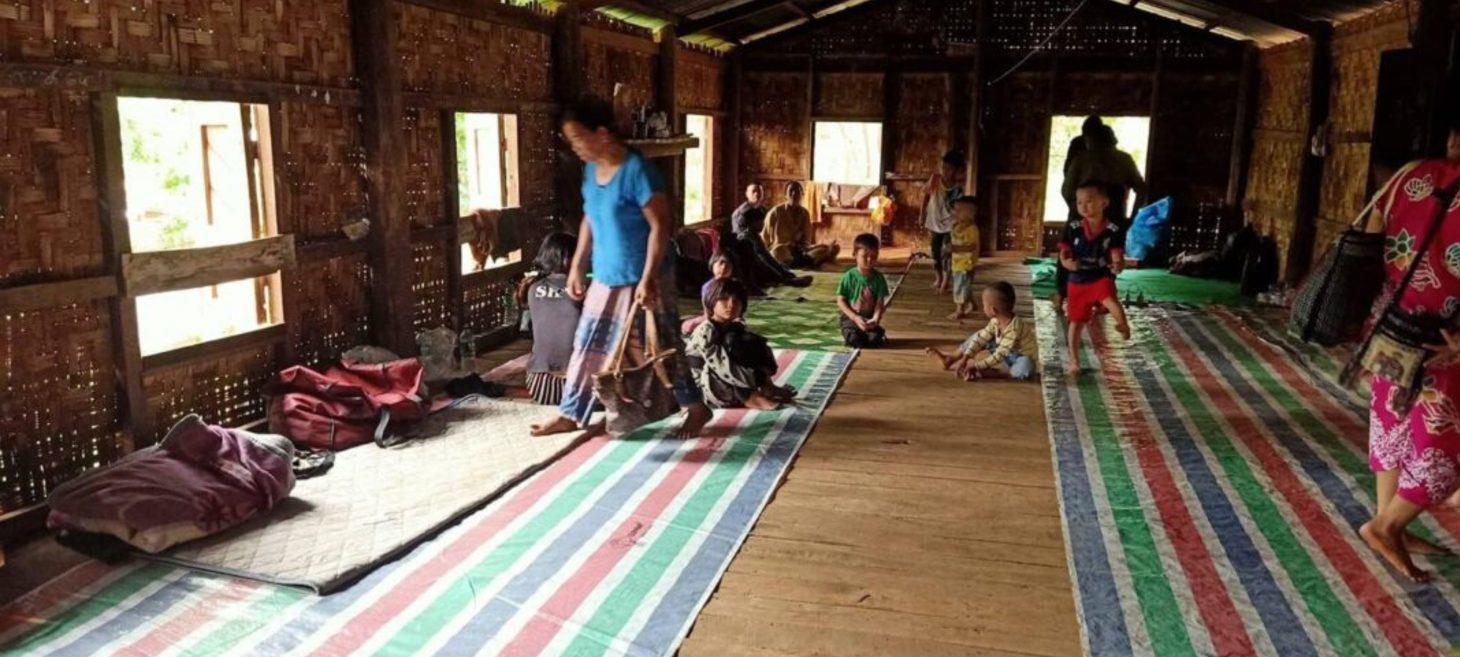
Thousands Flee Fighting in Kyaukme Township
Recent clashes between the Ta'ang National Liberation Army (TNLA) and the Burma army in Kyaukme Township have severely impacted thousands of civilians, leading to the displacement of many to nearby villages and monasteries for shelter. The conflict, which resumed following the breakdown of a Chinese-brokered ceasefire, has escalated with the TNLA and its allies capturing Kyaukme and Nawngkio towns. The situation has been exacerbated by regime airstrikes and shelling, causing widespread fear and forcing residents to seek refuge in safer areas, including Buddhist monasteries and relatives' homes. Additionally, the ongoing violence has disrupted local communication services, with reports of regime aircraft dropping numerous shells on various parts of Kyaukme, intensifying the humanitarian crisis in the region.
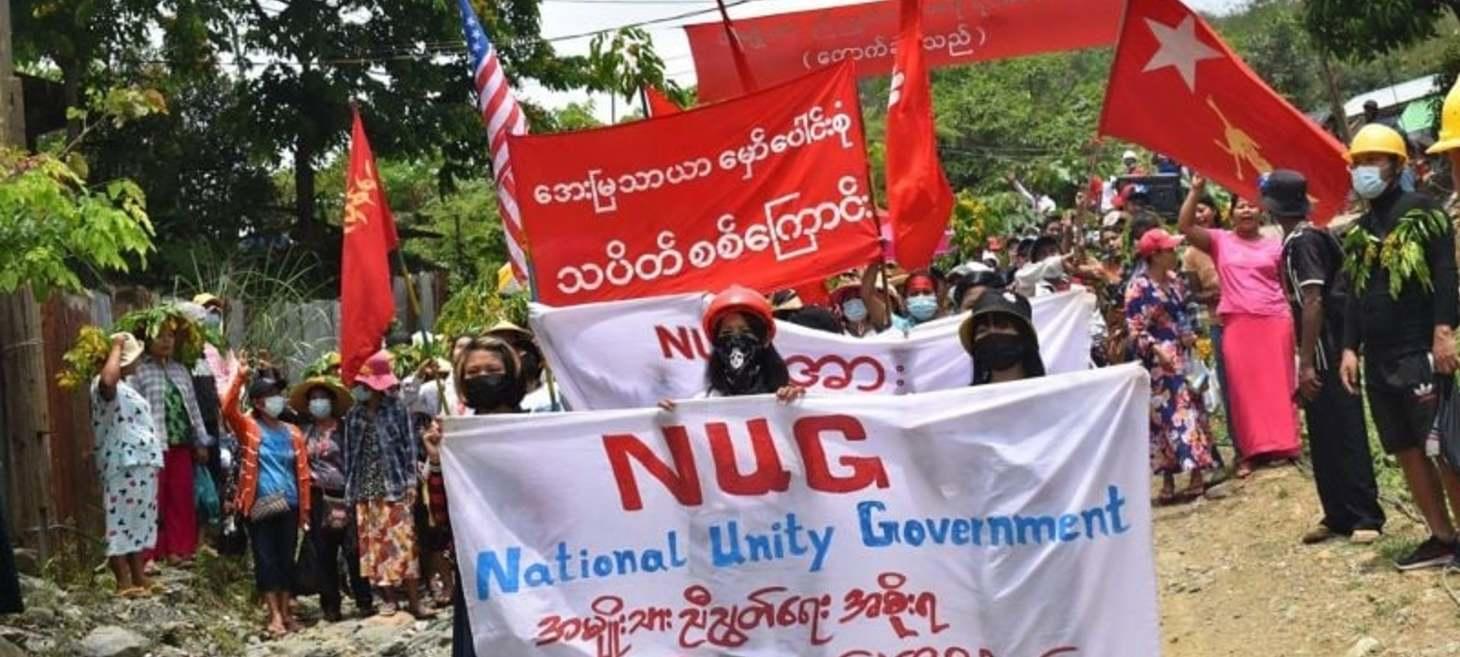
NUG says Myanmar PDFs joined resurgence of Operation 1027
The Ministry of Defence of Myanmar’s National Unity Government (NUG) announced that People’s Defense Forces (PDF) and battalions have joined Operation 1027, which began on 25 June in Northern Shan State and Mandalay Region, achieving military successes. Dubbed the “Shan Man” operation, it features PDFs and revolutionary forces penetrating the Mandalay region from northern Shan State. Key groups involved include the People’s Defense Force (Mandalay), Mogok Strategic Battalions, Kyaukme District’s Special Combat Forces, and others, in collaboration with the Ta’ang National Liberation Army (TNLA). The operation has seen attacks in Kyaukme, Nawnghkio, and Madaya, with joint forces capturing several strategic locations and military camps. The Military Council has retaliated with airstrikes, causing civilian casualties, though exact numbers remain unclear due to the ongoing conflict.
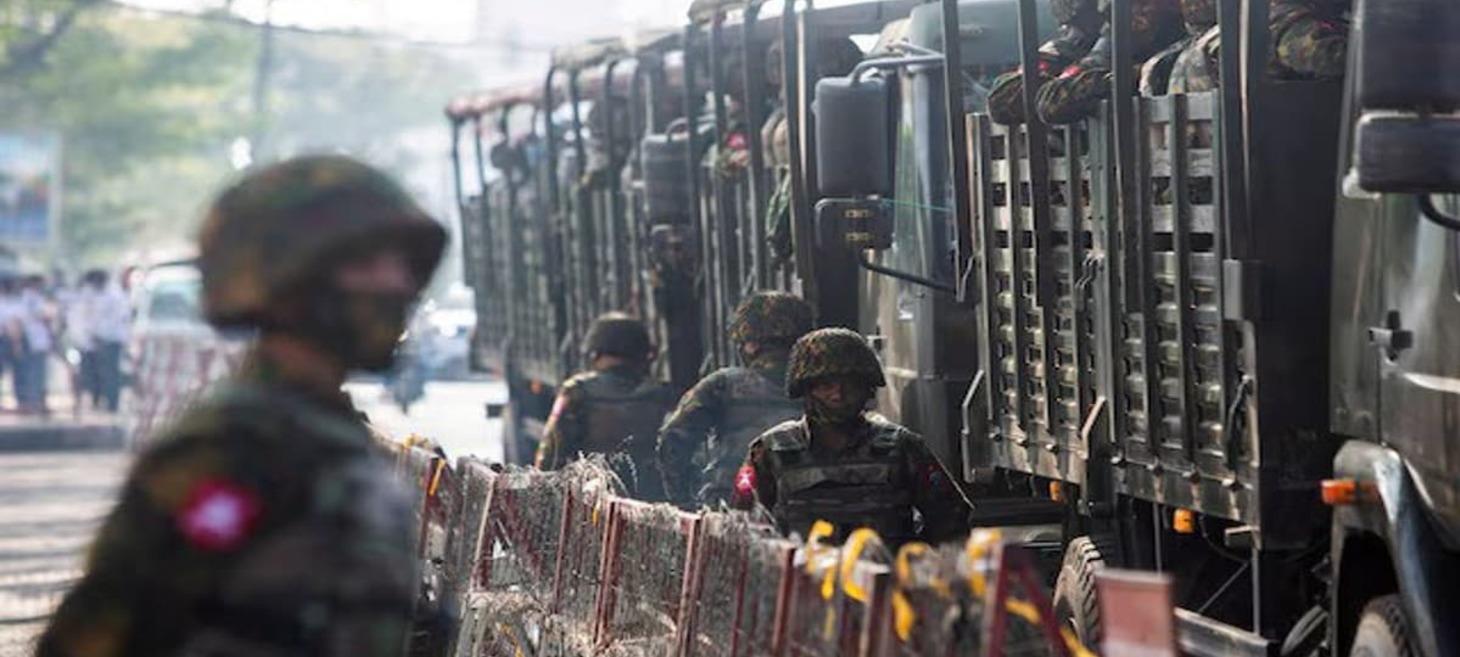
Ramification | Conflict, compromise or chaos: The bleak future of Myanmar
Three years after Myanmar's military coup, the Three Brotherhood Alliance launched Operation 1027 in northern Shan State, achieving significant success against the junta and inspiring Operation 1107, which united various insurgent groups nationwide. This rare coordination among Ethnic Armed Organizations (EAOs) was seen by many as a victory for democracy. Since 2023, the junta has faced substantial territorial losses, with resistance forces claiming control over 52-70% of the country. Despite the junta's firepower advantage and conscription efforts, the National Unity Government (NUG) enjoys widespread support. The situation remains a stalemate, with the junta controlling key assets and urban areas, while EAOs focus on their territories. The conflict has severe implications for Myanmar and its neighbors, exacerbated by issues like illegal rare earth mining and displacement.
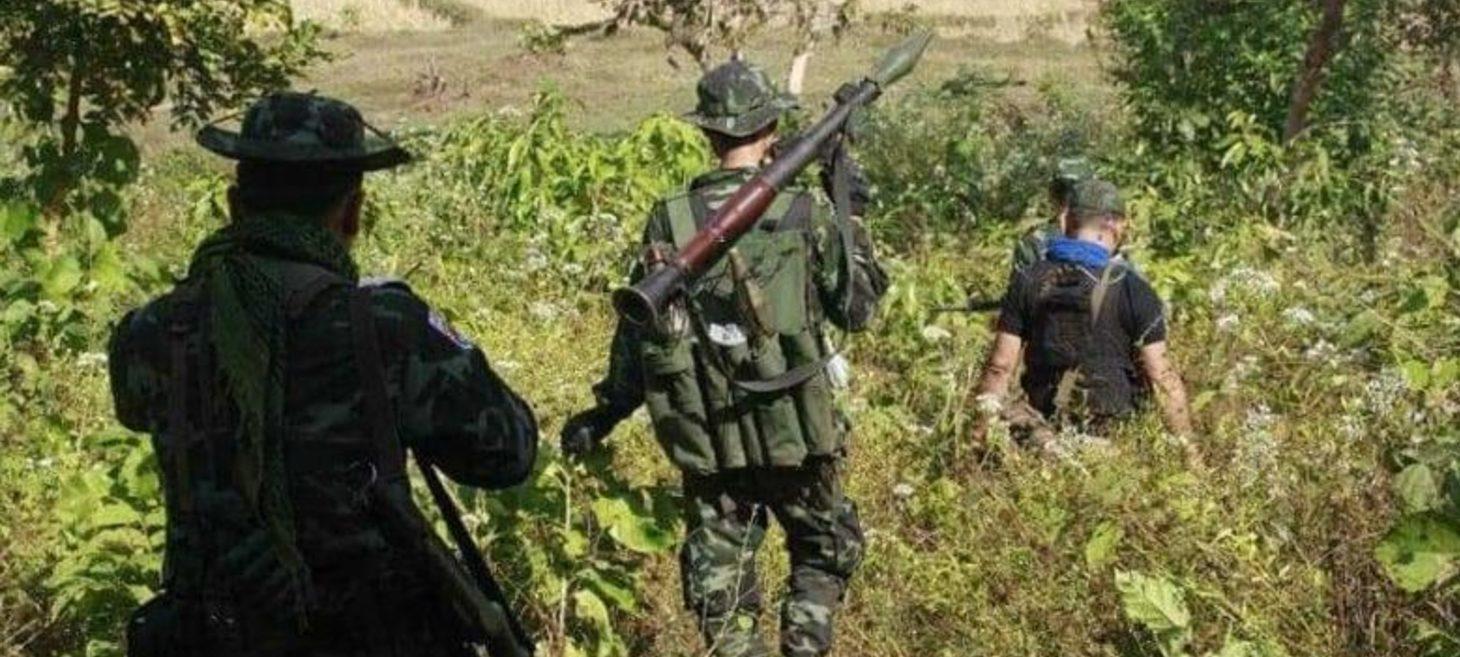
Junta-Allied Armed Groups Mobilize to Prevent Resistance Control along Kawkareik-Kyondoe Road
The Karen Border Guard Force (BGF), Mon Peace Defense Force (MPDF), and local militia units met in Kyondoe Khunhittaing village on June 25 to enhance security and military operations along the Kawkareik-Kyondoe road. They established checkpoints and outposts, conducting round-the-clock inspections and collecting arbitrary tolls from locals. The 97th Infantry Battalion is also launching daily artillery barrages in support of the Junta’s Operation Aung Zay Ya against the KNLA and allied forces. The Myawaddy-Kawkareik Asia Road has become impassable due to ongoing clashes, forcing locals and traders to use alternative routes controlled by Karen armed groups with ceasefire agreements with the Junta.
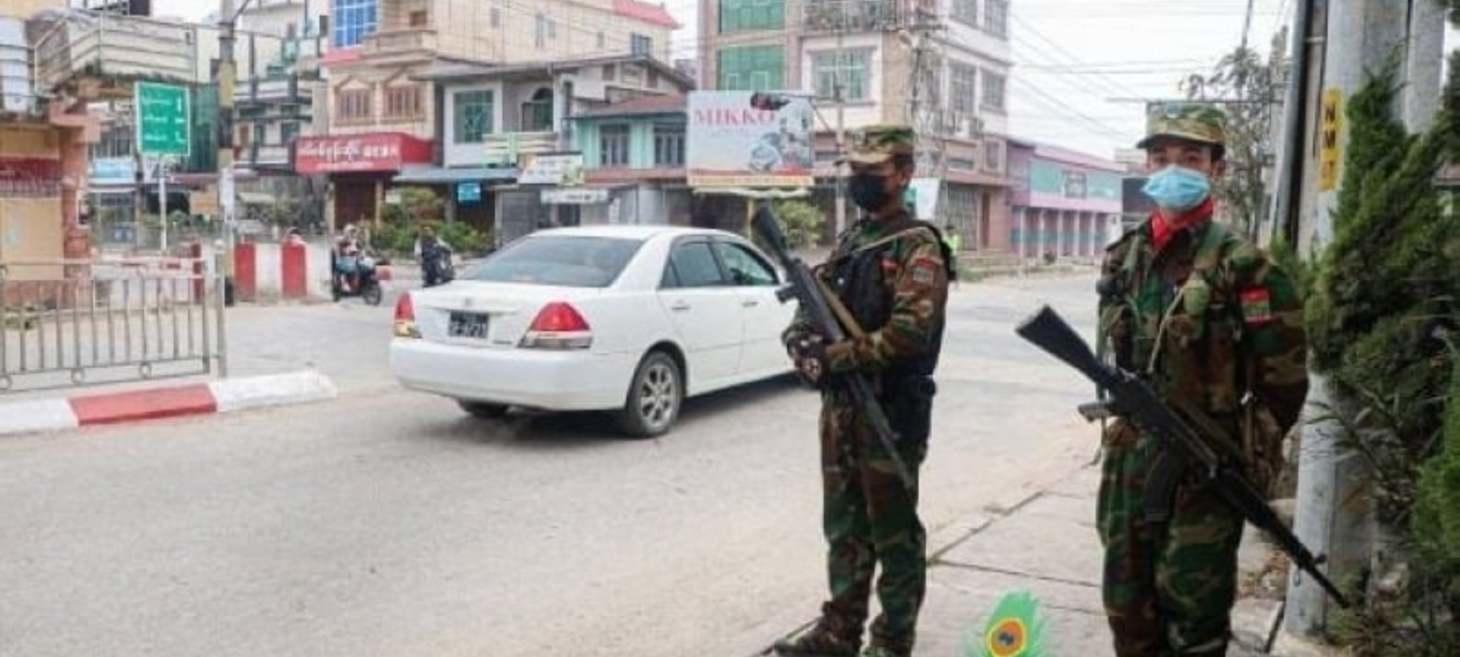
TNLA takes control of Nonkhiaw Town and continues offensives in northern Shan State
The Ta’ang National Liberation Army (TNLA) and allied forces have taken control of Nawnghkio Town and areas of Nawnghkio Township in northern Shan State. Starting on 25 June 2024, they launched attacks on junta bases in Nawnghkio, Kyaukme, Mogok, and Madaya. By 26 June, they had seized Nawnghkio Town and the junta’s Light Infantry Battalion (LIB) 115, capturing 17 soldiers and various weaponry. They continued their offensive, capturing the junta camp in Ohnmakhar Village and the Field Artillery Battalion 606 base on 27 June. Despite ongoing airstrikes and surveillance by the junta, the TNLA and Mandalay People’s Defence Army are intensifying their attacks on remaining military bases in the region.
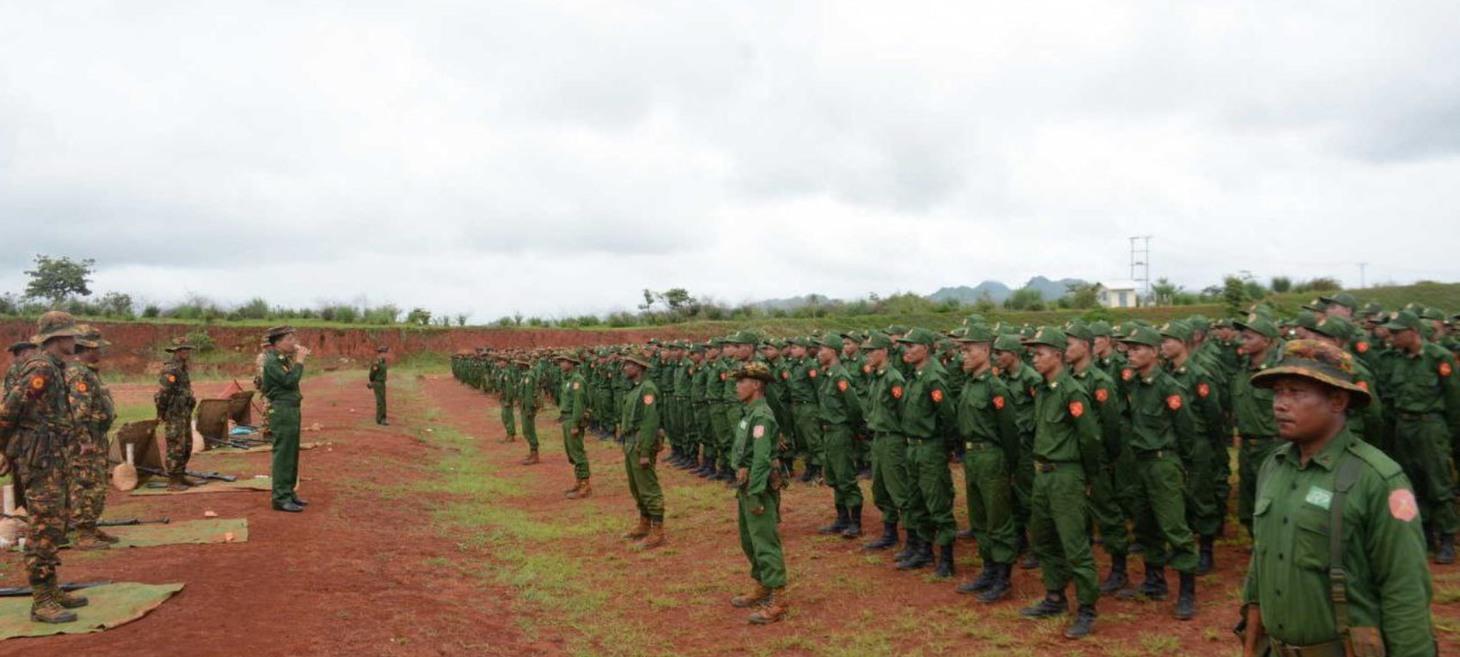
Myanmar Junta Bolsters Mandalay Defenses Amid Resistance Attacks
Myanmar’s junta is preparing to defend Madaya Township in Mandalay Region amid anti-regime advances by the Mandalay People’s Defense Force (PDF) and other resistance groups, who attacked the 1014 Air Defence Battalion near Sedawgyi Dam. The regime responded with airstrikes and tightened security on roads leading to Madaya, conducting patrols and vehicle checks. Madaya, a strategic location bordering several townships and regions, has been heavily reinforced with around 800 troops and militia members. Fighting has also erupted in nearby townships, with the Ta’ang National Liberation Army (TNLA) accusing the regime of violating a China-brokered ceasefire. The town is crucial for the regime to prevent further attacks on Mogoke and Nawnghkio and is adjacent to Pyin Oo Lwin, the seat of military academies.
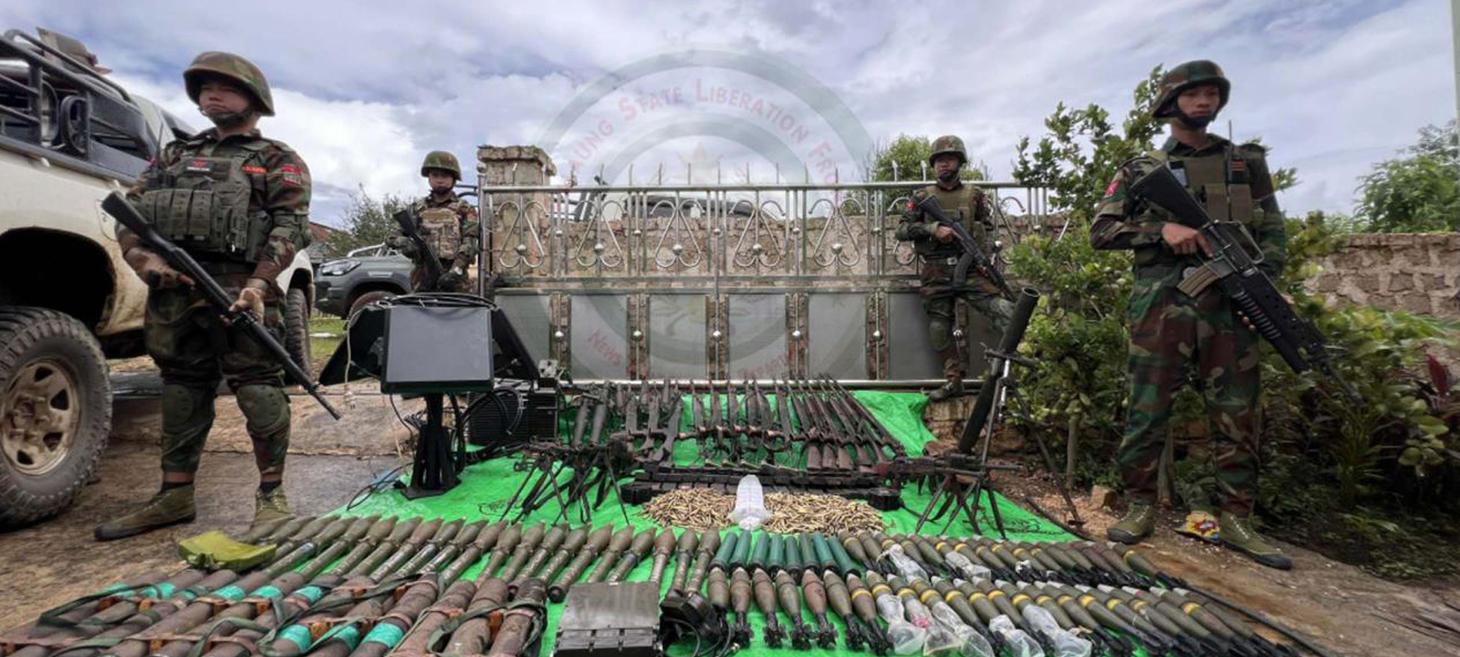
Myanmar Military Suffers Swift Losses as Operation 1027 Expands to Mandalay
The Ta’ang National Liberation Army (TNLA) and its allies have captured two dozen junta military bases, including an artillery battalion headquarters, in northern Shan State and upper Mandalay Region since resuming Operation 1027 three days ago. The operation, restarted in response to ceasefire violations by the junta, has seen the TNLA and Mandalay People’s Defense Force (PDF) seize key positions in Kyaukme, Nawnghkio, and Mogoke townships. The TNLA reported attacks on several junta positions, including the headquarters of Light Infantry Battalions 115 and 114, and Missile Battalion 606, with the junta responding with airstrikes. The offensive has led to significant civilian casualties and displacement, with the TNLA and PDF continuing their efforts to capture more junta bases.
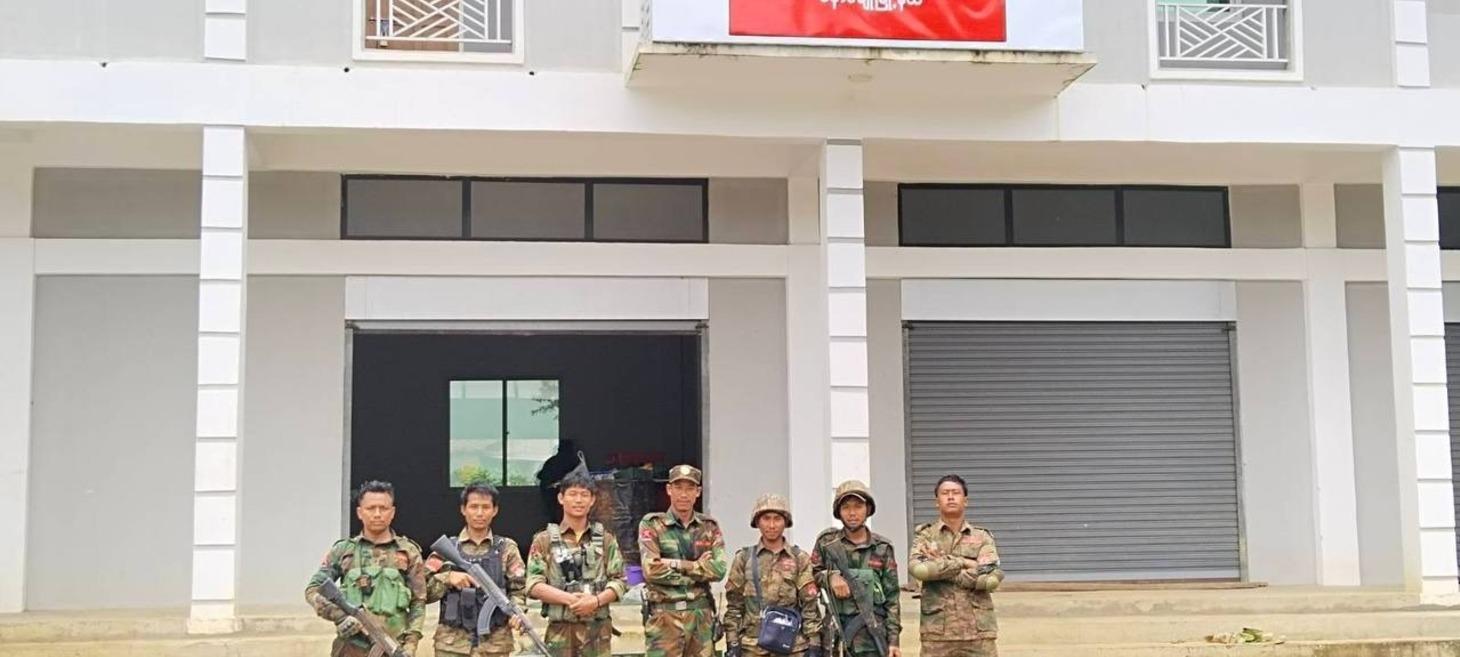
Escalating Conflict Between TNLA and Military Council Grips Kyaukme and Nawngkio Townships
In northern Shan State, renewed fighting between the Ta'ang National Liberation Army (TNLA) and the Military Council is escalating, marked by TNLA offensives against the Burma army following months of shelling despite a China-brokered ceasefire. Clashes have resulted in casualties and injuries among civilians, with incidents including a fatal shooting in Ward 9 and a shell attack near a market in Ward 8, leading to displacement and fear among locals. The conflict involves various locations, including Kyaukme Township and Nawngkio Township, with reports of TNLA, Mandalay People's Defence Force (PDF), and Danu People's Liberation Army engaging in attacks. Military aircraft activity and airstrikes by the junta have also been noted, contributing to the complexity and danger of the situation. TNLA's General Secretary attributed the resurgence of violence to the Military Council's violation of the ceasefire agreement through continued shelling and airstrikes.
Crime & Narcotics
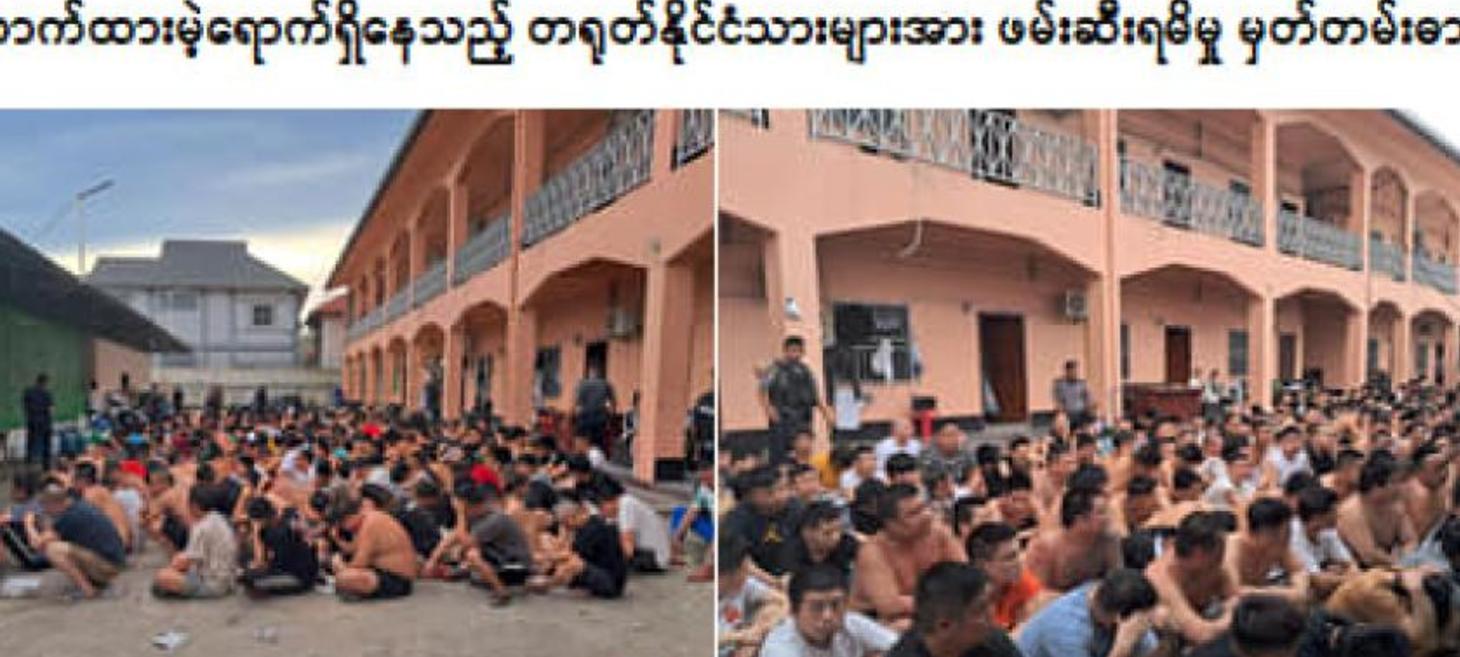
Myanmar authorities arrest 295 Chinese, 12 locals in major crackdown on illegal online gambling operations
In a significant operation against illegal online gambling, Myanmar authorities arrested 307 individuals, including 295 Chinese nationals and 12 locals, across two separate raids in Mandalay Region and Shan State. The first raid occurred in Pyigyidagun Township, where a residence was found to be a hub for such activities, leading to the arrest of 12 Myanmar nationals and the seizure of laptops, mobile phones, cash, and other equipment. The subsequent raid in Tachileik Township resulted in the arrest of 295 Chinese nationals and the confiscation of 900 mobile phones used in the gambling operations. These arrests highlight a major crackdown on illegal gambling activities in the region, with all detainees facing legal actions pending further investigations.

Myanmar Junta Admits 'Challenges' in Fighting Opium Cultivation, Meth Production
Myanmar's military junta has acknowledged significant challenges in controlling opium poppy cultivation and synthetic drug production, as the country emerges as a global leader in these narcotics markets. Despite efforts detailed by Lt.-Gen. Yar Pyae on the International Day Against Drug Abuse and Illicit Trafficking, the UNODC reports confirm a rise in opium production and a booming synthetic drug trade, particularly methamphetamines, largely centered in Shan State. This increase in drug activity is intertwined with ethnic conflicts and is exacerbated by the military coup of 2021, which has destabilized the region and diminished the legitimate economy, thereby fostering an environment conducive to drug trafficking. The military's claims of addressing the issue are complicated by accusations against ethnic armed groups and overlooked involvement of militias aligned with the military itself, highlighting a complex and deeply rooted drug crisis.
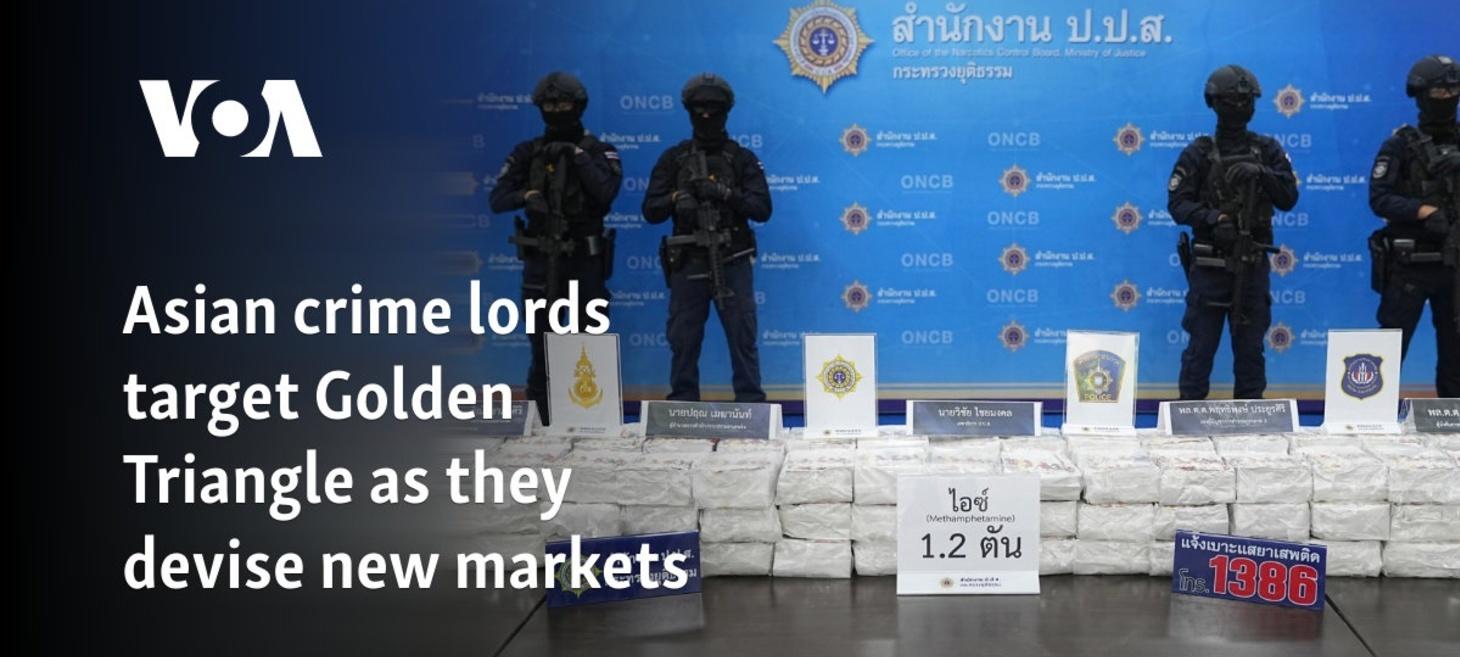
Asian crime lords target Golden Triangle as they devise new markets - Voice of America
Crime empires in Asia's Golden Triangle, spanning Thailand, Laos, and Myanmar, are increasingly merging illicit activities with the legitimate economy, as highlighted by the United Nations Office on Drugs and Crime. These organizations, thriving amid Myanmar's post-coup chaos, particularly in the lawless Shan State, are expanding their criminal enterprises beyond traditional drug trafficking to include wildlife trafficking, cyber scams, and extensive money laundering through casinos and cryptocurrency. The region's strategic location and porous borders facilitate the seamless flow of illegal goods, including methamphetamine, which is produced in vast quantities and sold at extremely low prices, further complicating the socio-economic landscape. The blurred lines between legal and illegal economies, coupled with rampant corruption, pose significant challenges to governance and law enforcement in the region.
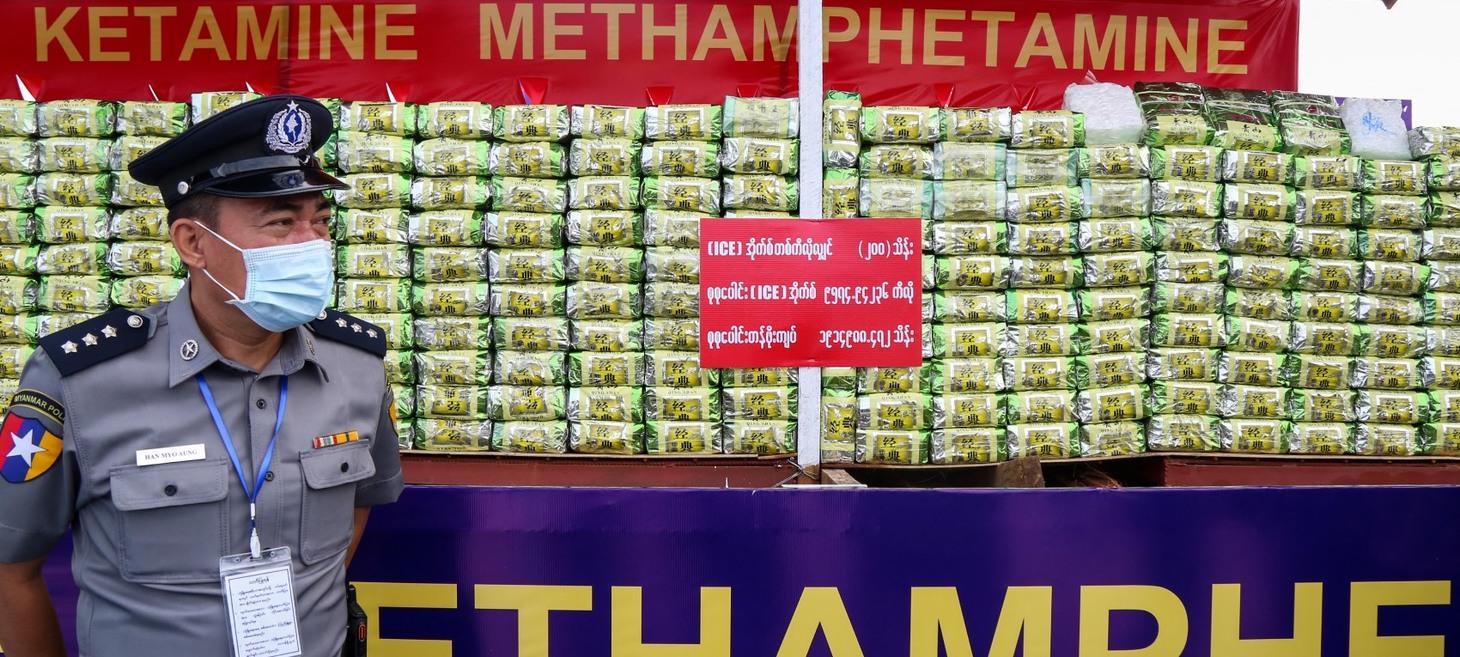
Myanmar Junta Says 'Facing Challenges' Curbing Opium Boom
Myanmar is struggling to curb opium poppy cultivation amid ongoing conflict and instability since the military coup in 2021, which has severely impacted the legal economy. The junta acknowledged a slight increase in illegal opium poppy cultivation in 2023, with production rising to 1,080 metric tonnes, making Myanmar the world's largest opium producer after Afghanistan's production dropped. Ethnic armed groups are also accused of manufacturing synthetic drugs using imported precursor chemicals. Despite efforts such as burning $349 million worth of drugs on World Drug Day, the opiate economy's value has surged to between $1 billion and $2.4 billion, representing a significant portion of the country's GDP. Analysts doubt the military's commitment to ending the lucrative drug trade.
Economy
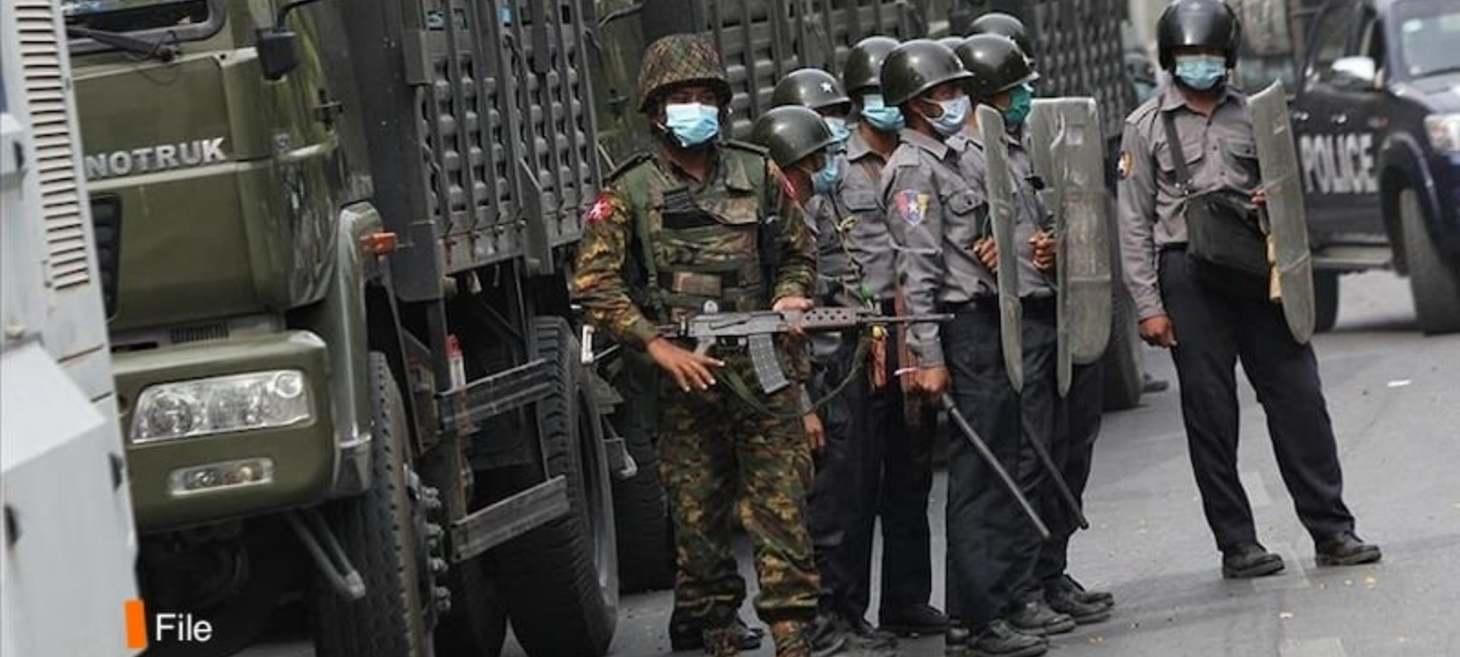
Junta and armed groups levying tolls on Mon State border road
Junta forces and armed groups are taxing travelers on the Mudon to Three Pagodas Pass highway, a critical route connecting Mon State to the Thai border. According to the Human Rights Foundation of Monland, drivers face multiple checkpoints, paying over 10,000 MMK per passenger, which has become a significant financial burden amid the economic crisis. Since early 2024, restrictions on the forest route have forced drivers to use the rough and conflict-prone Danone Village route, increasing travel time and safety risks. The toll fees, managed by junta and allied forces, amount to approximately 16,000 MMK per passenger, exacerbating the financial strain on locals and travelers. The situation has worsened since the military coup, with nearly 30 checkpoints established along the border routes.
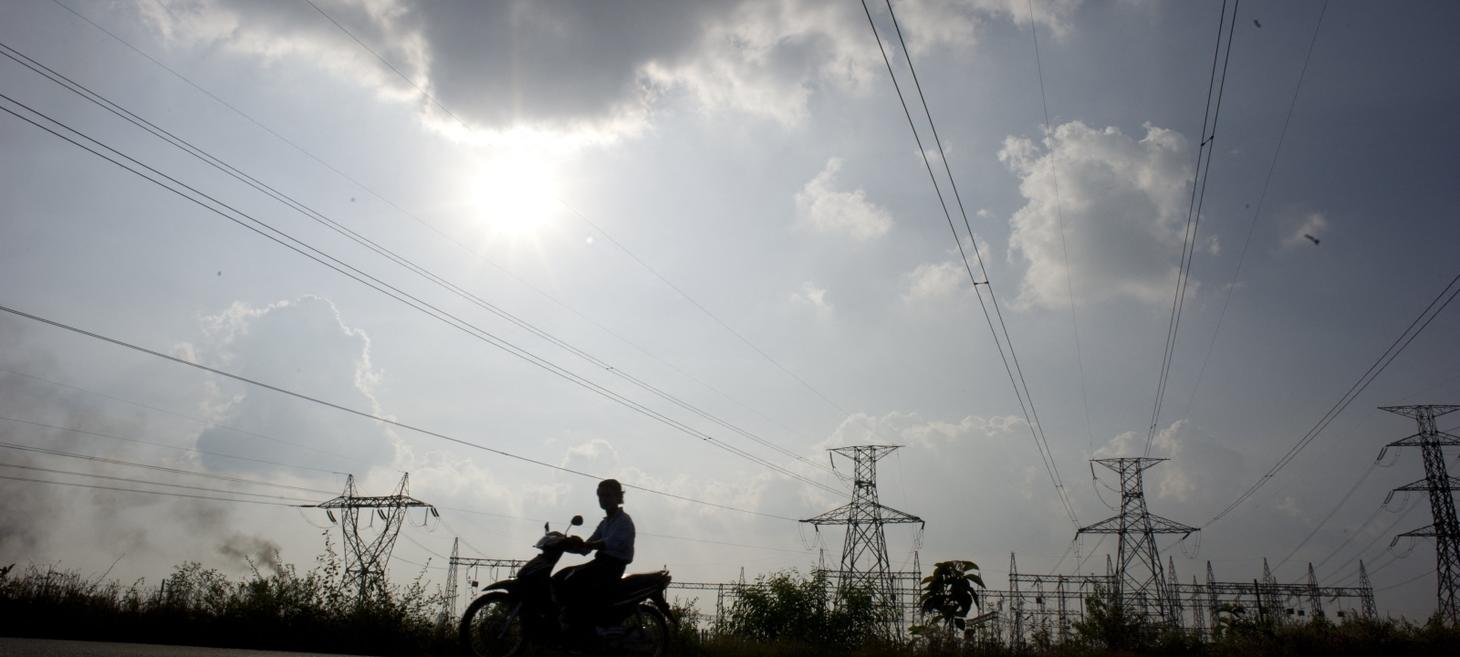
Power cuts bring Myanmar’s industry to its knees
Across Myanmar, industries are grappling with severe power cuts that have significantly impacted productivity and operational capabilities. The situation escalated in May when industrial zones experienced reductions in electricity supply from four hours to approximately two hours daily, a measure taken by the junta to prioritize power for private households during extreme heat. This move, coupled with the overall decline in electricity production due to a lack of foreign investment and economic mismanagement post-coup, has left businesses reliant on costly generators or facing shutdowns. The World Bank reports a substantial increase in companies citing power outages as their primary challenge, with manufacturing firms hit hardest. Despite some relief during the rainy season, the long-term outlook remains bleak, with dwindling natural gas reserves and no significant new power generation projects on the horizon, indicating continued hardships for Myanmar's industrial sector.
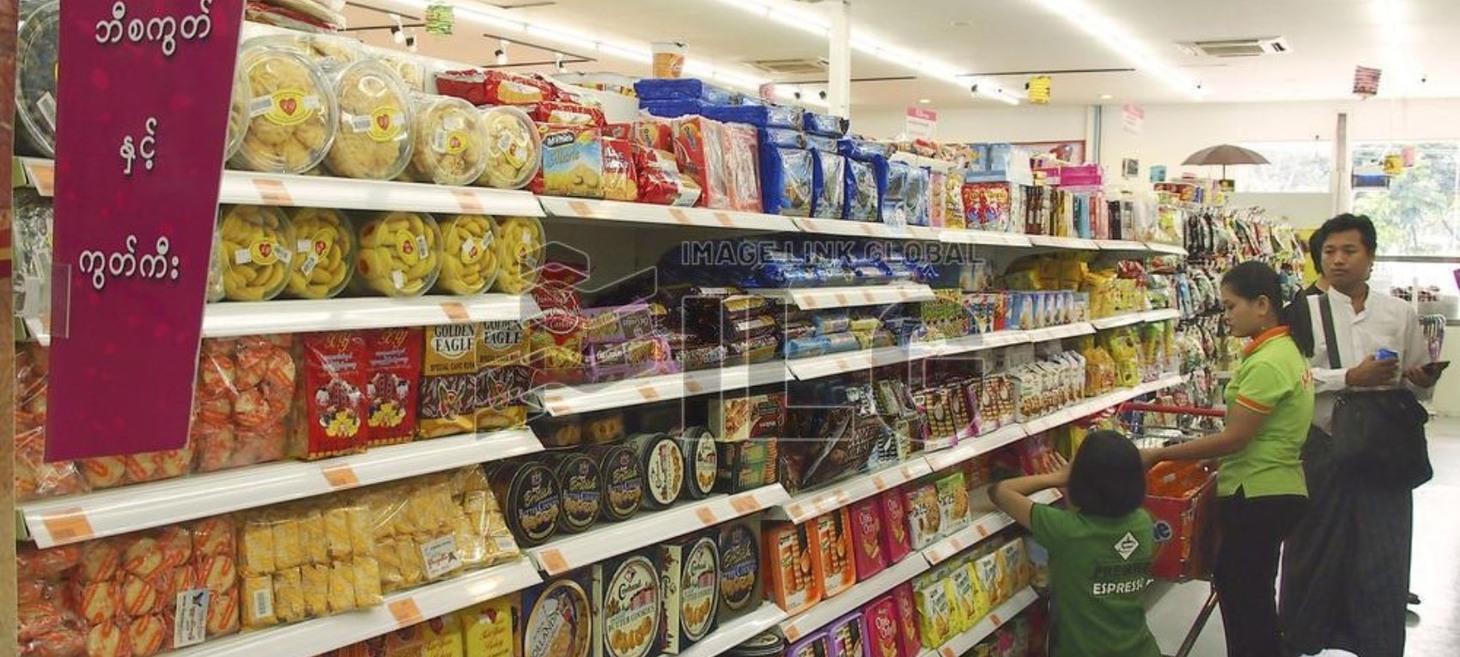
Japanese Supermarket Chain Director Arrested in Myanmar for Price Gouging
Myanmar's military junta has arrested Hiroshi Kasamatsu, a Japanese executive from Aeon Orange, along with three Myanmar nationals, accusing them of violating the Essential Supplies and Services Law by selling rice at inflated prices, aiming to create economic chaos. Kasamatsu, who directs Aeon's Commodity Division in Myanmar, was detained after investigations into rice mills and supermarkets. The arrests come amidst escalating rice prices, attributed to factors like the El Niño weather pattern, market speculation, and disruptions caused by the ongoing conflict post the 2021 coup. Despite these challenges, Aeon Orange continues to operate several supermarkets in Yangon. The Japanese government has demanded Kasamatsu's immediate release, emphasizing his good health during interrogation at a Yangon police station.

Japanese executive among 11 arrested in Myanmar for inflating rice prices
In Myanmar, amid economic instability and widespread poverty exacerbated by the ongoing conflict since the military coup in February 2021, authorities have arrested 11 individuals, including four executives from supermarket chains and a Japanese national associated with a joint venture, for allegedly inflating rice prices by 31% to 70%. This crackdown comes as part of the junta's efforts to stabilize the economy, which has been further complicated by a significant disparity between the official and black market exchange rates for the country's currency, the kyat. Despite these challenges, Myanmar still produces ample rice, but the government's attempts to control prices have led to difficulties for businesses in the sector, contributing to the current economic turmoil.
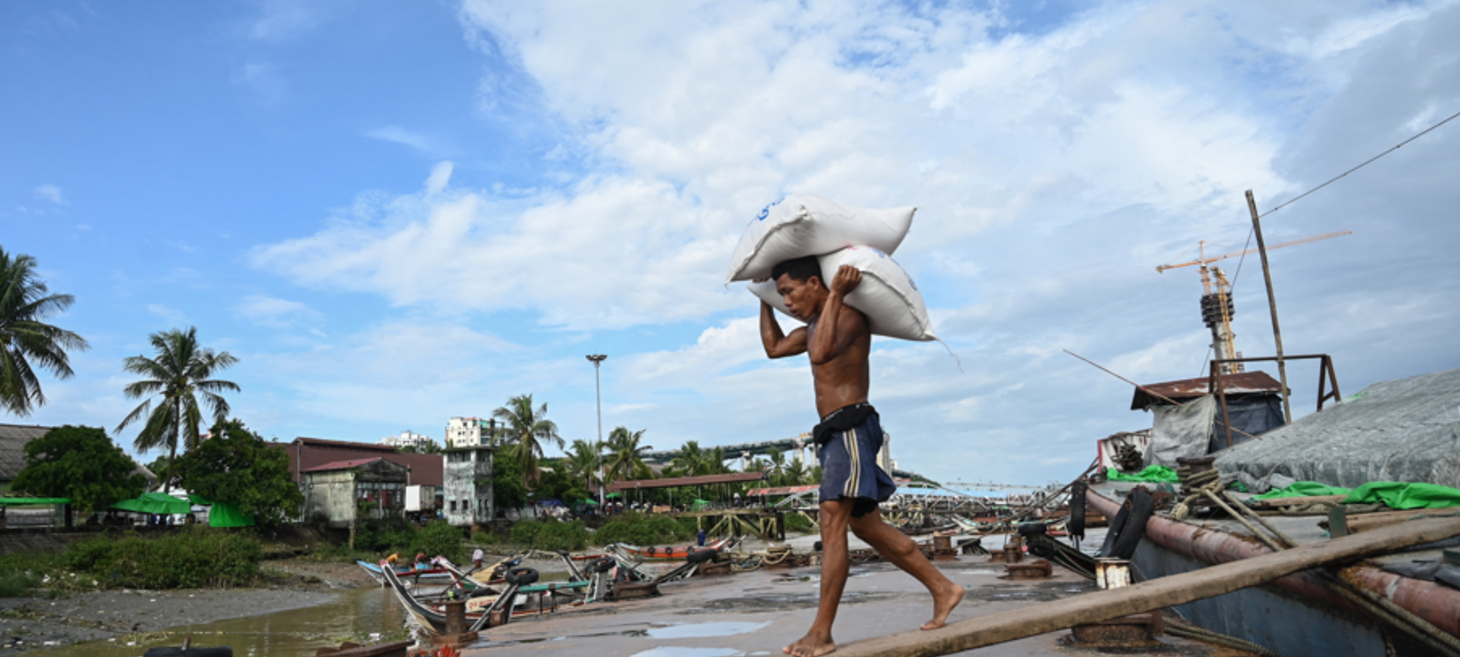
World Bank has the stats but the citizens understand Myanmar’s dire economic straits
The Myanmar Economic Monitor Report for June 2024, titled "Livelihoods Under Threat," highlights the severe economic crisis in Myanmar, emphasizing the human cost of the ongoing turmoil. Despite the challenging circumstances, the economy is not entirely collapsed, with projections indicating a 1% GDP growth by March 2025, albeit below initial forecasts. The report underscores the impact of the crisis on ordinary citizens, such as May, a shop owner in Yangon, who struggles with the rising costs of living amidst a slowing business environment. The economic hardships are exacerbated by the military junta's actions, including arrests for social media posts about salary increases and the enforcement of a conscription law leading to labor shortages. Despite these challenges, certain sectors like agriculture show resilience, and the economy continues to function, albeit at a reduced capacity. The situation is further complicated by the COVID-19 pandemic, conflict, and political instability, leading to increased poverty rates and economic insecurity for a significant portion of the population.
Military
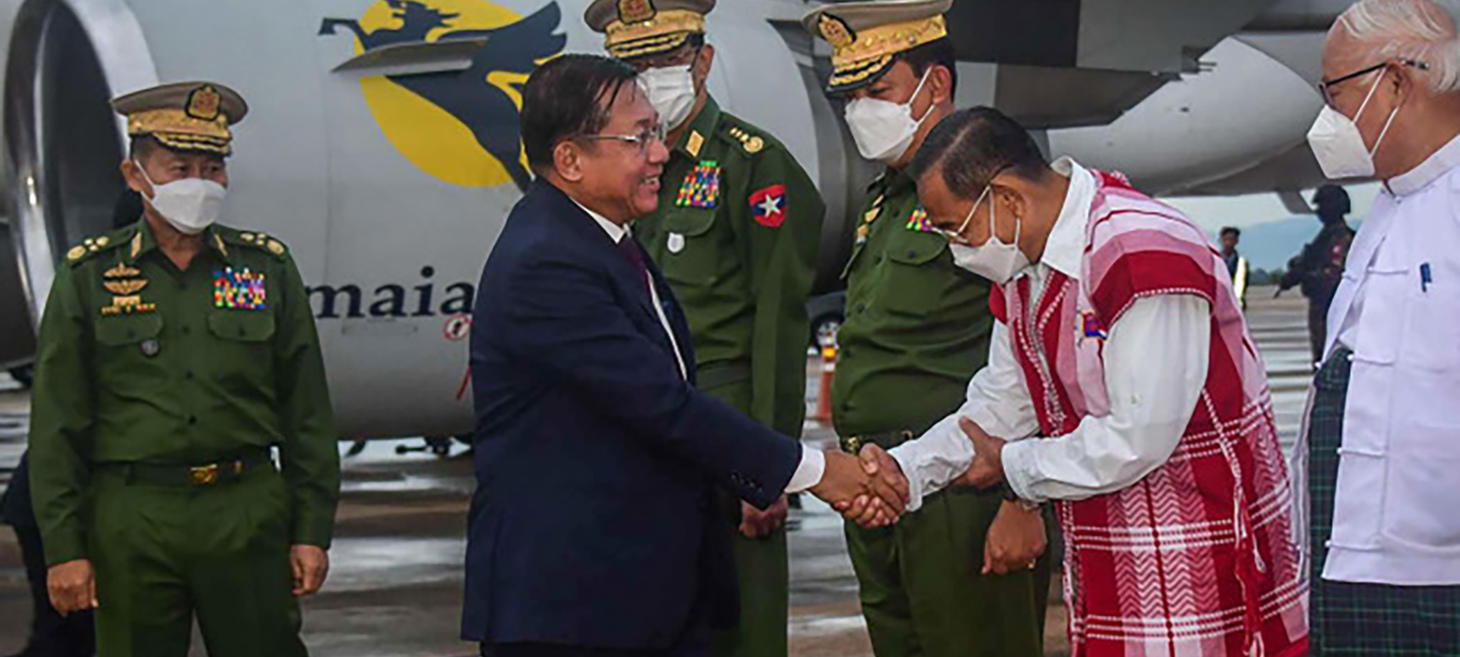
Myanmar Regime Hands Pensions to Governing Body Members and Advisors
Myanmar's regime has announced that it will award pensions to members of its governing body, the State Administration Council (SAC), and advisers to junta chief Min Aung Hlaing. These pensions, which are one-time payments based on their monthly salaries, will be given to those who complete their term or resign due to health issues. The announcement, made in the junta gazette on June 21, has sparked public outrage, as many view it as rewarding individuals responsible for civilian deaths amid the country's economic crisis. The SAC includes 18 members, while the advisory board comprises eight members, including former National League for Democracy (NLD) members and other notable figures.
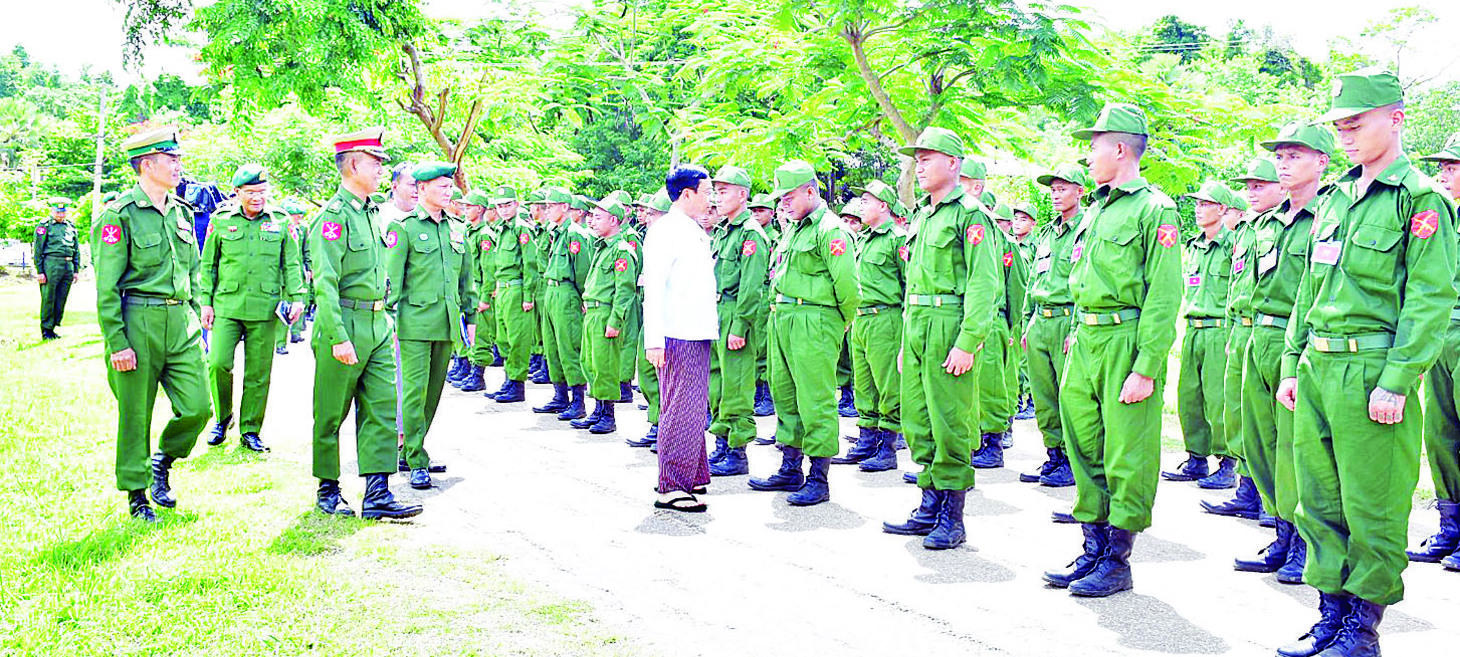
Myanmar junta using veterans, militias to secure capital, as more soldiers sent to frontlines
As the conflict in Myanmar intensifies, the military junta is increasingly relying on veterans and militias to secure the capital, Naypyidaw, while deploying more soldiers to front lines. This strategy reflects the junta's concern over maintaining control in urban centers amidst growing resistance movements and the need to bolster defenses in active combat zones. The mobilization of veterans and militias indicates a broadening of the junta's security apparatus, suggesting a deepening involvement of various armed groups in the ongoing struggle for control over the country.
United Nations

UN report claims foreign banks enabling Myanmar junta to buy weapons
A report by Tom Andrews, the UN Special Rapporteur on human rights in Myanmar, reveals that foreign banks are facilitating the Myanmar junta’s access to weapons and related materials. The report, "Banking on the Death Trade," identifies 16 banks in seven countries involved in transactions linked to the junta’s military procurement and 25 banks providing correspondent services to Myanmar’s state-owned banks. Despite a decline in formal military procurement, the junta circumvents sanctions by exploiting gaps and shifting financial institutions. Singapore has significantly reduced its role as a source of weapons following government action, while Thailand's involvement has increased, with Thai banks playing a crucial role. The report urges financial institutions and governments to take stronger actions to prevent enabling the junta’s human rights violations.